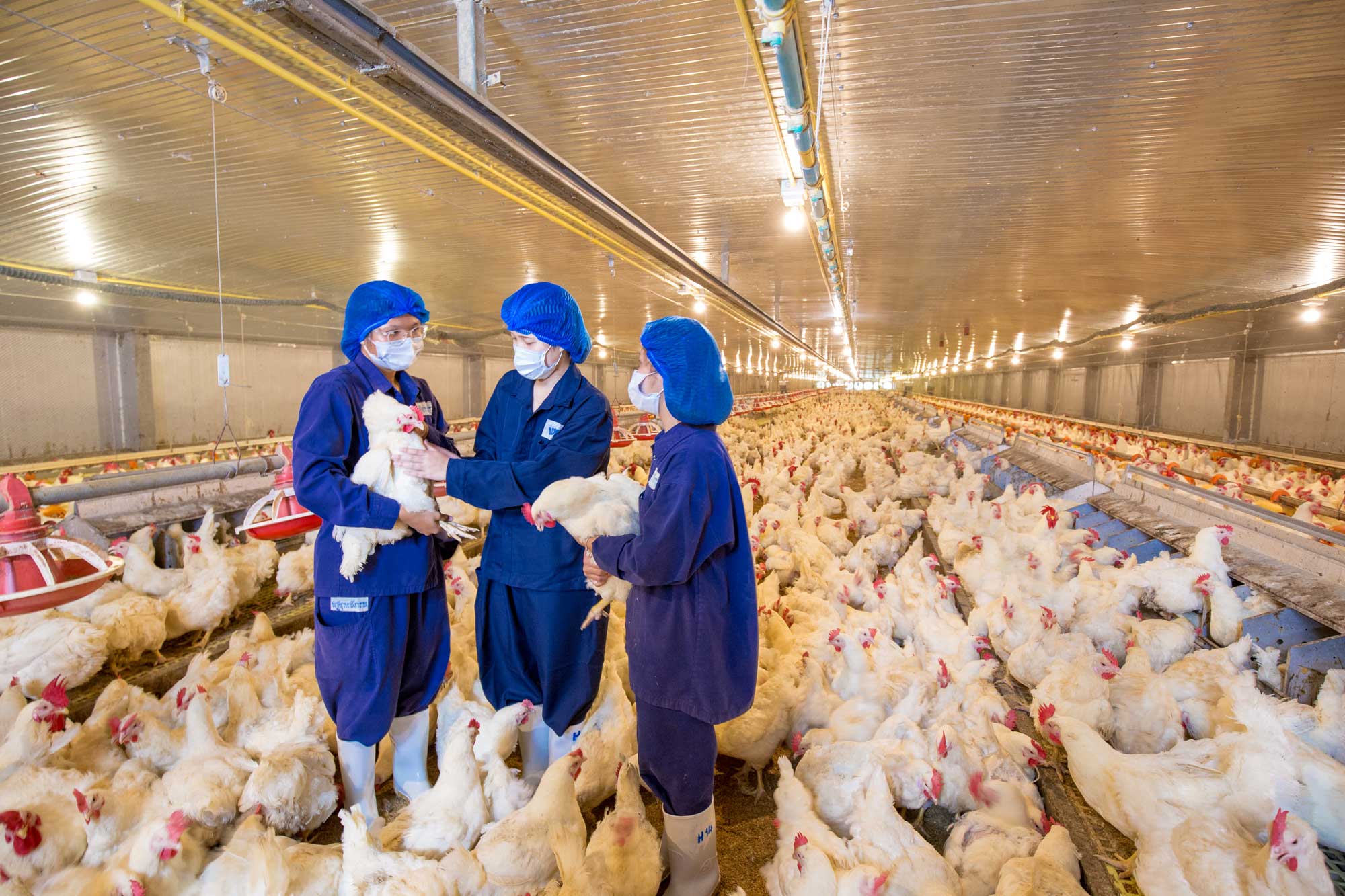The filter zone is the heart of biosecurity in any poultry farm. It is a transition area, often a dedicated room, which acts as a physical and procedural barrier between the external environment and the internal environment of the farm.
Its main function is to prevent the entry of pathogens that could compromise the health and productivity of the animals.
How is it structured and what does it contain?
The filter zone is designed to enforce a mandatory cleaning and clothing change process. It is typically divided into two distinct areas, separated by a physical barrier (such as a step or bench):
Dirty Zone – The initial area. Here, staff and visitors leave their clothing, footwear, and personal belongings that come from the outside environment.
Clean Zone – The inner area. This area can only be accessed after completing the hygiene procedures. Here, specific disinfected clothing and footwear from the farm are worn, ready for contact with the animals.
In order for the process to be effective, the filter zone must be equipped with specific equipment:
Changing room – Lockers or shelves for storing street clothes and tidying up work clothes.
Sink – For thorough hand washing with running water and soap, often with hands-free taps.
Disinfection devices – Dispensers for disinfectants and specific solutions for cleaning hands and footwear.
Showers – In many high biosecurity farms, showering is mandatory to completely eliminate any external contamination.
The controlled access process
The filter zone must be the only point of access to the farm area. The standard procedure is as follows:
Entry into the Dirty Zone – The visitor or operator enters, removes their personal clothing and shoes, and stores them.
Passage to the Clean Zone – The barrier (or shower, if provided) is crossed.
Hygiene and dressing – Hands are washed and disinfected, and clean work clothes specific to the farm are put on.
Access to the sheds – Only after completing all these steps is it possible to access the areas where the animals are kept.
Why is this an essential element?
The filter zone is crucial for disease prevention. Acting as a sterile “buffer,” it prevents the introduction of viruses, bacteria, and other pathogens that could be carried on clothing and shoes.
Maintaining a healthy and clean indoor environment not only protects animals from possible epidemics, but also guarantees the quality and safety of the final products.
Specific measures for hatcheries in Italy
What applies to farms in general applies even more so to hatcheries, for which the Ministerial Decree of May 30, 2023, provides a checklist for the orderly assessment of biosecurity (version rev_2024):
- The following areas are kept separate: egg storage and sorting, egg disinfection, pre-incubation, incubation for hatching, sexing and vaccination of day-old chicks, conditioning of hatching eggs and day-old chicks for shipment*
- Day-old chicks and hatching eggs kept in the hatchery come into contact with rodents and birds outside the hatchery*
- Operations are based on the principle of one-way movement of hatching eggs, mobile equipment, and personnel*
- In the case of a new establishment, a one-way air flow is provided inside the premises*
- Adequate natural or artificial lighting and air and temperature control systems are available*
- The floors, walls, and all other materials or equipment in the hatchery are cleanable and disinfectable*
- Suitable equipment is available for cleaning and disinfecting the facilities, equipment, and means of transport used for day-old chicks and hatching eggs*
- There are cleaning and disinfection protocols for incoming vehicles and personnel*
- Eggs are cleaned and disinfected between arrival at the hatchery and the incubation process or at the time of shipment**
- Incubators and equipment are cleaned and disinfected after hatching*
- Packaging materials are cleaned and disinfected after each use**
- Staff are provided with dedicated work clothes*
- Visitors are provided with coveralls and shoe covers*
- Staff have adequate knowledge and skills and have been trained in biosecurity*
- Staff working in the hatchery, even on an occasional basis, do not keep birds as pets*.
- The operator has written certification from staff (including those who work occasionally) that they do not keep birds as pets*
* Required by Ministerial Decree of May 30, 2023, “Implementation of biosecurity measures in poultry farms.”
** Required by Ministerial Decree of May 30, 2023, but with specific derogation rules.











